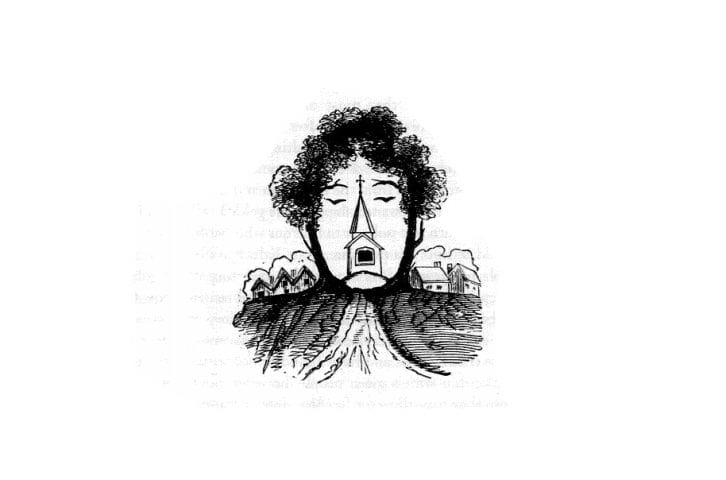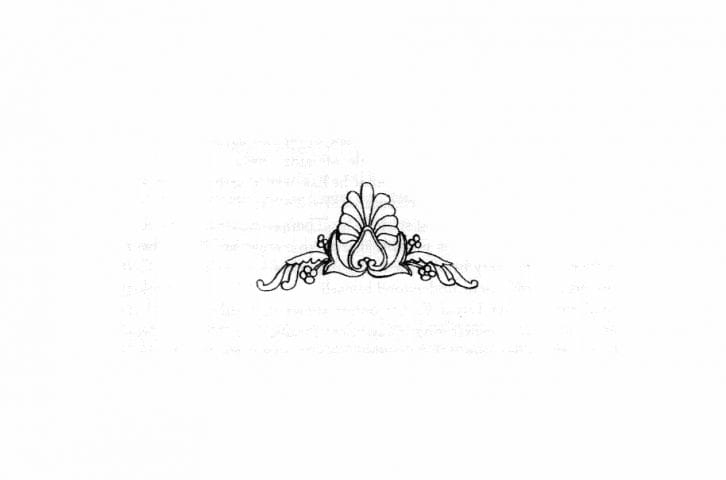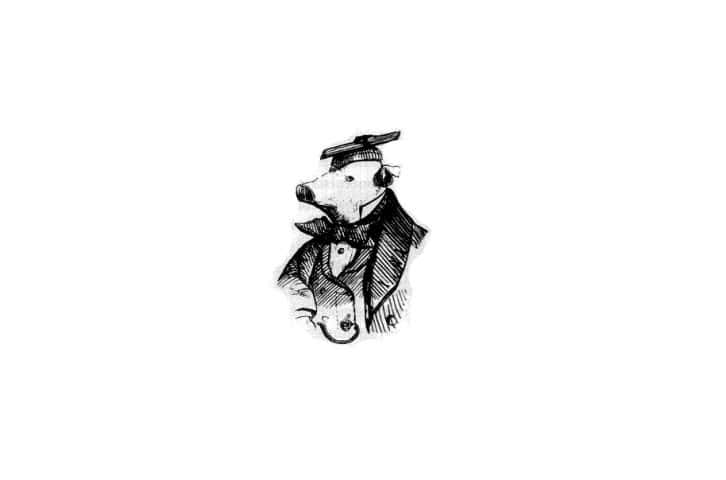Books Reviewed
A review of Why I Am A Catholic, by Garry Wills
In the preface to his play "Saint Joan," the honest agnostic George Bernard Shaw observed: "Compared to our infallible democracies, our infallible medical councils, our infallible astronomers, our infallible judges, and our infallible Parliaments, the Pope is on his knees in the dust confessing his ignorance before the throne of God, asking only that as to certain historic matters on which he clearly has more sources of information open to him than anyone else, his decision shall be taken as final." Shaw had, perhaps, not yet noted the rise of the infallible professor or the infallible journalist, and was spared by time from witnessing the infallible television anchor and talk-show host. But his assessment of the relative claims of various secular authorities vis-a-vis those of the pope remains essentially just.
Yet even Shaw might have been surprised by the emergence, after the Second Vatican Council, of the infallible anti-Catholic Catholic. A distinction is in order here. To be an anti-Catholic Catholic does not mean merely disagreeing with the pope on some point. Catholics since the beginning have clashed with the highest authority in the Church. Paul confronted Peter at Antioch over whether to retain Jewish law; after Constantine made Christianity the official religion of the Roman Empire, various secular rulers supported—but also undermined, corrupted, clashed with, and only occasionally reformed—Church leadership; in the Middle Ages, Dante could put bad popes in Inferno and describe a living one as the "new king of the Pharisees"; and so on. No. Mere criticism of this or that pope or papal teaching was and is something different than the anti-Catholic Catholic (hereafter ACC).
The ACC arose with the cultural revolution that we associate with the 1960s. While professing to be more Catholic—because more historically sophisticated and authentically compassionate—than the pope, the ACC denies most of what divides Catholicism from current culture in the advanced Western democracies, while professing deep allegiance to the basic truths of the Faith as contained in the ancient Creeds. Thus it becomes entirely possible to disagree with Rome on contraception, abortion, divorce, and homosexuality, and at the same time to hold fast to the One God, the Trinity, the Incarnation, the Communion of Saints, the Forgiveness of Sins, etc. Of course, even here the "Father Almighty," "the Judgment of the Living and the Dead," and other non-feminist, judgmental—in a word, non-liberal—tenets of the Creed need some creative massaging to make them ACC compatible. And it is obvious, even to the theologically challenged, that these large concepts have long been accepted by all serious Christians and are not much help in distinguishing a Catholic from a Lutheran, or either from a Methodist (respectable Christian options, but something other, by their own self-understanding, than Catholic).
In the United States, Garry Wills has struggled mightily to establish himself as one of the most prominent ACCs, though he would dispute the justness of the term. When his book Papal Sin appeared in 2000 (Darton, Longman & Todd, Ltd.), many American Catholics wrote to thank him for expressing their own reasons for dissent while remaining Catholic. Others wrote to say that his subtitle, Structures of Deceit, seemed a more apt description of the book itself than its ostensible subject. Wills decided to write another volume Why I Am A Catholic to explain further how he, and his admirers, have adopted the views they have while not in the least considering themselves to have betrayed the basic beliefs of Catholicism. Of course, this operation produces odd consequences. The pope, for instance, retains a proper role as a promoter of unity. But unity should consist in his telling traditional and liberal Catholics not to sin against openness and tolerance while liberals set the agenda.
* * *
Wills opens this book with a lyrical reflection on being born into a mixed WASP/Irish Catholic family in Atlanta. He loved the warmth and closeness of the Catholic side. His father eventually converted and Garry claims never to have been tempted to leave the Church, even when he briefly doubted the existence of God. He was well educated in Catholic institutions during the allegedly anti-intellectual days prior to Vatican II. They inspired him to enter, for a time, a Jesuit seminary. And here a telling characteristic begins to emerge. Though anyone who was similarly educated can attest that many Catholic schools and colleges succeed wonderfully in teaching large numbers of American Catholics the beliefs and intellectual skills that have led to Catholic success in American society, for Wills the good teachers and administrators seem to be operating outside or against the religious program, especially in the seminary. The real psychopaths, he allows, were rare and, for all the quirks of the pre-Vatican II seminary, not typical. But for all the surface gratitude, Wills the failed seminarian seems to exaggerate the limitations and underplay the strengths of the older system.
But it is the large middle section, an analysis of the development of Christianity from its Jewish roots to the papacy of John Paul II, that is the whole raison d'etre of the present book. Amid some clear and balanced analysis of the early Church, it contains some oddities. Catholics in English-speaking countries, for example, will be surprised to learn that one of their own believes that the English Reformation martyrs Edmund Campion, Robert Southwell, and Bishop John Fisher, who remained loyal to Rome, were simply traitors and rightly died traitors' deaths. Wills simply sidesteps the more famous Thomas More. The moral of the tale seems to be that, creedal statements aside, Catholic history essentially underwrites modern social liberalism. This implausible contention—modern liberalism didn't exist until the modern age and few Catholics historically would have thought it a good thing—is even stranger because Wills adopts as his three patron saints in the enterprise Augustine, John Henry Newman, and Chesterton.
Augustine lived in the period scholars have come to call Late Antiquity, when the intellectual center of the Roman Empire had returned to the area that had been most fertile in thought throughout classical antiquity, the Greek-speaking Eastern Mediterranean. Sheer genius brought the Latin-speaking Augustine to prominence in a North African region known for its conservatism, a kind of ancient Midwest or Bible Belt. Many progressive Christians have been taught at seminaries and Christian colleges to frown on Augustine for that very reason. Whatever else you can say about the wayward African who became the bishop of Hippo, he was not a member of the Church of What's Happening Now. Wills likes to emphasize that Augustine did not recognize absolute papal authority and had other views that might lead him to be a liberal if he came back today. It's always a bit of a stretch to claim any figure of the past for present causes, and there's room to debate certain elements in Augustine. But in our religious and culture wars, Augustine seems much more likely fall into John Paul II's camp than into a liberalized American Church.
The same is true of Newman. A brilliant convert from Anglicanism, Newman became a Catholic because he had engaged in a serious study of Church history. As he put it in a famous phrase, "to be deep in history is to cease to be a Protestant." Protestants may disagree, of course, but Newman's quite sophisticated reading of Church history convinced him that he should enter the highly conservative Catholic Church of the mid-nineteenth century. Newman had grave doubts about the formal proclamation (shortly after his conversion) of papal infallibility and thought the laity should be consulted in matters of the faith (during the Arian controversies, the laity and a lone bishop, Athanasius, held up the orthodox teaching, giving rise to the wry observation that most of the heresies in Christian history are named after bishops).
But Newman's notion of consulting the faithful is not merely a matter of counting noses. When Moses came down from the mountain and found the ancient Hebrews worshipping the golden calf, he didn't turn to a pollster to find out whether he should rethink his position about Yahweh. The whole Hebrew Bible is more or less the story of the cyclical waywardness, repentance, and return of the People of Israel. The Christian story is not much different. Revealed religions must make truth claims and have a kind of normative relationship with a given people, however much room they may allow for freedom, interpretation, and development. So as with Augustine, for many reasons, it is difficult to believe that Newman would have thought liberal American Catholicism much different than heresy.
* * *
Wills's third patron saint, Chesterton, is a staple of conservative social thought on all matters but economics. Yet Wills cites him repeatedly, particularly towards the end of his long exposition, as an advocate of truth and sanity. Many people know Chesterton's work today and know further that he abhorred the early signs of the social liberalism Wills tries to graft onto Catholicism. Using him in this way makes Wills quite vulnerable to the charge that he is deep in his own "structures of deceit."
But nothing reveals Wills's biases more than his venom towards John Paul II and the sanity his papacy has brought back to the Church. After recounting the troubled last decade of Paul VI's papacy, he says: "Paul VI seemed to yearn back, beyond the intervening council, to a more settled time, a kind of blissful status quo ante. John Paul II was ready to takepeople back there." This is sheer slander about a man who has been one the great champions of freedom of the last half century. Like Ronald Reagan, he helped defeat Communism, one of the true scourges of the human race, when everyone thought that modern developments had destined the West to second-place status, and he has no authoritarian wish to return to any past state. Wills, however, can only glimpse him through a political lens—one of the "McCarthyite" anti-Communists who saw insubstantial threats everywhere. That John Paul believes there are timeless truths and principles that survive even modern liberal church councils is indisputable. But only a certain type of liberal thinks that such beliefs mark an authoritarian.
It might be truer to say that Wills, like many others of his generation, is himself a prisoner of the past, a past that foresaw a liberalized future for Catholicism that has not come to pass and now will never do so. The Catholic Church will remain, at least for the foreseeable future, one of the few institutions in the world willing to say "No" to self-indulgent Western peoples. Wills talks about "papal policy" as if a number of current issues were simply changeable once the right executive and legislature are in power. So the Church's "homophobia" (an anachronistic term when applied to Biblical religions if there ever was one) does not represent a constant teaching about the immorality of homosexual activity, which Catholics and other Christians inherited from Jewish sources going back to the Torah. No. This moral principle is merely misguided allegiance to something dreamed up by a bunch of Italian bishops and then sold to a stubborn Pole, who is not sufficiently intimidated by Western media pressures.
Wills tries to play the democracy card on issues like this including divorce, contraception, abortion, etc., which he rightly says Catholics are involved in just as much as other Americans. But like homosexuality, all Christians—not only Catholics—were of one mind on these questions until relatively recently. The burden of proof is on those who want to change the teaching.
A further problem for Catholic liberals is that demographics are against them. Traditional Catholics have more children than liberal Catholics, and socially conservative Hispanic immigrants are going to play a large role in the future of the American Church. In addition, Christianity's critical mass is shifting from Europe and North America to Latin America, Africa, and even Asia. Philip Jenkins has argued in The Next Christendom: The Coming of Global Christianity (Oxford, 2002) that some of the conflicts that have been seen in Anglicanism recently—churches in developing countries opposing the liberalizing of church teaching by First World Anglicans—will become even more striking in the future. Sub-Saharan Africa alone is likely to have 1.5 billion Catholics, more than currently exist in the whole world. "Consulting the faithful" may be a lot less appealing to First World Catholic liberals in the very near future.



